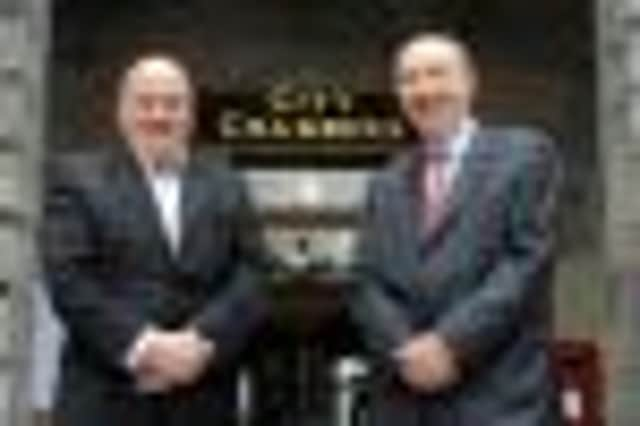Edinburgh council set for major row over ‘tourist tax’ revival


Labour and SNP cllrs who have won control of the city council have pledged to pursue a “transient visitor levy” which could see tourists asked to pay extra to support promotional and marketing initiatives for the city.
However the move has enraged tourism bodies who thought the idea had been killed off for good last year.
Advertisement
Hide AdA transient visitor levy could see extra charges added onto hotel and restaurant bills, as well as tickets for major festivals and events, including the Fringe and Hogmanay.
The council agreed in December to take forward plans for a tourist or bed tax last year, only for tourism minister Fergus Ewing to warn that local authorities do not have the existing powers.
He said at the time: “A visitor levy could damage the industry’s competitiveness, especially in the current economic circumstances.”
However, in its new coalition agreement, the council has insisted it will “consult further on the viability and legalilty of a transient visitor levy”.
The move has been defended by council-leader elect, Andrew Burns, who has pledged “full consultation” with the tourism industry before any scheme is introduced.
However his party, Labour, which spent the last five years in opposition, had previously unveiled plans to use a tourist tax to help pay for the city’s festivals.
Advertisement
Hide AdHis number two, SNP group leader, Steve Cardownie, has been an outspoken critic of the hotel industry for failing to put enough back into the city’s coffers from profits made off the back off money-spinning events.
A report to the council in March on the possibility of a “transient visitor levy” revealed that specialist legal advice sought by the council had found there were “no existing powers for a local authority to introduce a TVL in Scotland.”
Advertisement
Hide AdIt added: “In reaching this view, the various pieces of legislation pertaining to local authorities have been considered.
“None appear to give local authorities powers to raise taxes other than council tax and rates.”
However a possible loophole may be open to the city council because the local authority thinks a possible tourist tax may actually be the responsbility of the Westminster government.
Cllr Burns said: “There was definitely some dubiety about the legal situation the last time this came back to the council.
“All we are saying at this point is that we are planning further consultation on a transient visitor levy.
“We are going to have another look at it and will take it forward with interested parties.”
Advertisement
Hide AdHowever Colin Paton, chairman of the Edinburgh-based Portland Hotels group and head of the Edinburgh Hotels Association, said the proposition was “anti-business.”
He told The Scotsman: “This is extremely unhelpful for the tourism industry to be revived by the council at this time.
Advertisement
Hide Ad“It will deter capital investment, deter inward investment and deter potential visitors to Edinburgh.”
Robin Worsnop, chair of the Edinburgh Tourism Action Group, added: “A transient visitor levy completely undermines the fact that the tourism industry is generating economic benefit for the city and bringing benefit for the entire city.
“I don’t believe there is any support whatsoever for it from within the industry. I’m not sure why the council has decided to revive it again.”
Cllr Burns said he expected a report on the issue to be brought back to the council in less than a year.
The council said Marketing Edinburgh’s business plan was now not expected until the autumn.
A spokeswoman added: “It may be worth adding that over a period of several years our expectation is that Marketing Edinburgh will raise more private sector finance for specific campaigns and therefore their reliance on council funding will be likely to reduce on gradual basis.”
Advertisement
Hide AdLucy Bird, chief executive of Marketing Edinburgh, said: “We’ve built strong relationships formed around co-operation and trust with the council and look forward to working with the new administration and the private sector on the consultation.
“Collectively, the public and private sector focus will be on finding the best way to provide for Edinburgh’s economic growth and prosperity.”